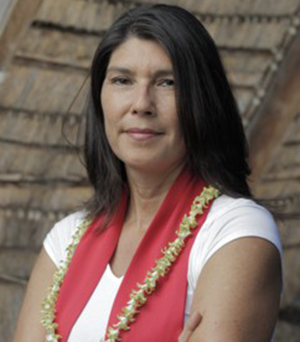Quebec Network Environment for Indigenous Health Research
NEIHR fosters ‘faces yet to come’ in health research through Indigenous community mobilization, academic transformation and capacity enhancement
Dr. Treena Delormier, Associate Professor, School of Human Nutrition, McGill University


Through Tahatikonhsontóntie’ (which means ‘the faces yet to come') Quebec Network Environment for Indigenous Health Research (QcNEIHR), Dr. Delormier’s team addresses health research needs of Indigenous communities, researchers, and knowledge users in Quebec. This involves building new health research capacity through intercultural knowledge exchange and participatory research. QcNEIHR, which is based at Kahnawake Schools Diabetes Prevention Project, will create an environment where Indigenous partners and knowledge users can access Indigenous training, research tools, and methodologies so that academic training can change. QcNEIHR’s governance has an Operations Circle, a Research Circle, and a Network Advisory Circle that respect Indigenous communities and the Network’s partners. The COVID-19 pandemic prevented QcNEIHR’s plans to consult in-person with health leaders and Indigenous communities at Quebec venues and address concerns of First Nations and Inuit Peoples. However, this NEIHR still strategized the concerns of these partners and stakeholders through virtual meetings on Zoom (translated simultaneously in English and in French). At a recent QcNEIHR half day virtual retreat, 30 attendees received the Network’s annual report, and provided input regarding next steps. QcNEIHR is currently completing an environmental scan of Quebec’s academic institutions to learn what Indigenous initiatives could support their effort. Dr. Pierre Haddad, QcNEIHR’s Executive Director, will also launch an innovative ‘experienceship’ program so that Indigenous students can learn about wellbeing from Indigenous community knowledge holders/mentors.
“QcNEIHR wants members of Indigenous communities to engage in health research projects that matter to them,” said Dr. Delormier. “If we help build that capacity, we’ll realize our long-term goal of seeing all Indigenous communities mobilize their Peoples’ resources (in terms of their territories and academic institutions). Ultimately, this knowledge exchange and mobilization will improve Indigenous wellbeing and help us move towards best health practices.”
- Date modified: